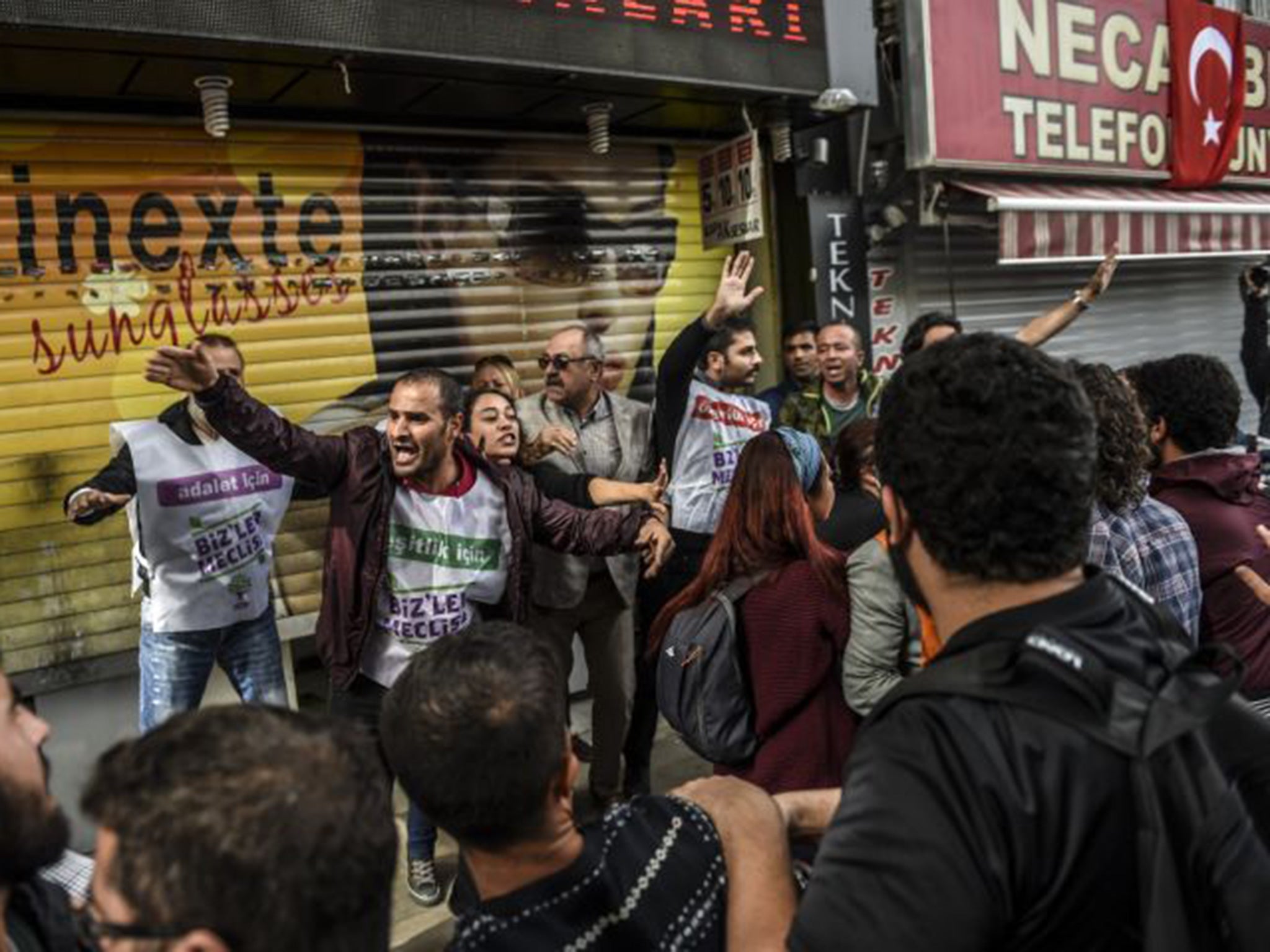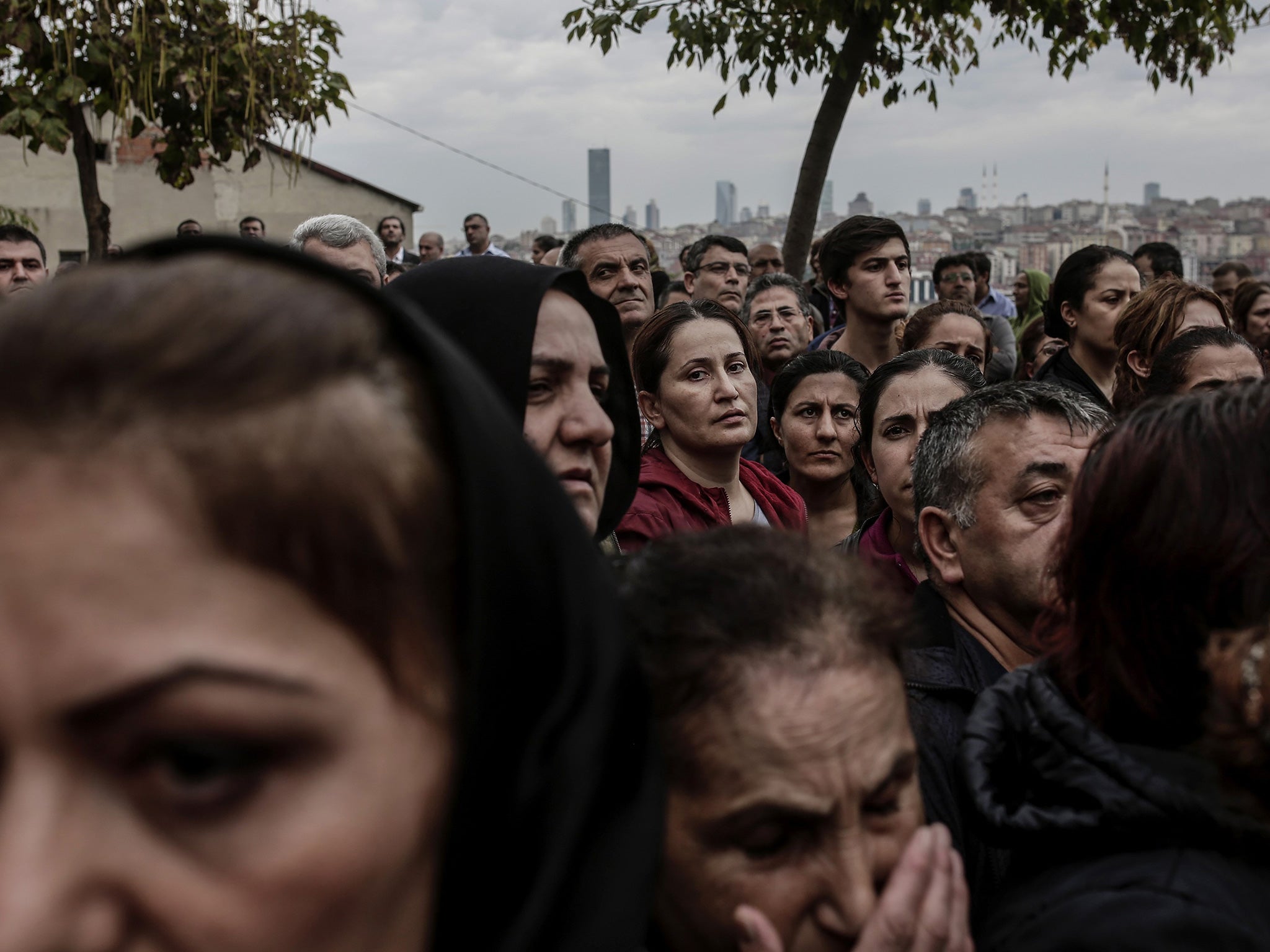Ankara bombing: An attack designed to sow division appears to have succeeded
Nobody has yet claimed responsibility for the two suicide bombings, but the attack has all the hallmarks of Isis


Is Turkey joining the array of eight countries engulfed by violence in the Middle East and North Africa? The suicide bombing of a peace rally in Ankara that killed more than 100 people on Saturday is an ominous sign that the same factors that have effectively destroyed Iraq and Syria as unitary countries are affecting Turkey.
It comes less than three weeks before the Turkish parliamentary election, when President Recep Tayyip Erdogan and the Justice and Development (AK) party will discover if they are going to maintain their monopoly of power which they have held since 2002.
The initial signs do not encourage optimism. People going to place flowers at the scene of the bomb attack were tear-gassed by police. Nobody has yet claimed responsibility for the two suicide bombings, but the attack has all the hallmarks of Isis.
The aim is obviously to increase polarisation between Kurds and Turks and between the government and its opponents. The last such suicide bombing that killed 33 pro-Kurdish activists at Suruc in July led to retaliation by the Kurdistan Workers’ Party (PKK) whose insurgency has been at the centre of Turkish politics since 1984. The government responded at that time by restarting the war against the PKK – and effectively against its Kurdish minority as a whole – which has led to heavy air strikes and guerrilla attacks.
The general assumption is that Mr Erdogan’s actions are directed at discrediting, or even seeking to eliminate, the pro-Kurdish People’s Democratic Party (HDP). By winning 13 per cent in the poll in the last general election in Turkey in June, the HDP robbed the AK party of its majority and prevented Mr Erdogan from creating an all-powerful presidency.

It did so primarily because of Mr Erdogan’s apparent preference for Isis over the Syrian Kurds during the siege of Kobani that ended in January with a Kurdish victory. The HDP’s success came almost entirely because conservative and religious Kurds switched from the AK party. Nothing that Mr Erdogan or the AK have done since the last election is likely to woo these voters back in the coming election on 1 November.
The Turkish government has shown continuing tolerance towards attacks on the HDP offices and those of newspapers it deems hostile. The PKK has now declared what amounts to a ceasefire, but the guerrilla war in south-east Turkey has built up its own momentum with ambushes and killings creating waves of anger among Turks and Kurds. Could all this be switched off after the election when Mr Erdogan will have played the nationalist card with or without success? If he does not wish to de-escalate the Kurdish/Turkish confrontation, or finds he cannot do so, the outlook for Turkey will be permanent unrest and insecurity.
This is likely to be much worse than in previous cases of the Kurdish insurrection because the political geography of the region is changing. There is today a Syrian/Kurdish quasi-state with a strong administration and powerful army supported by the US Air Force in north-east Syria. Moreover, the government of this area is the Syrian branch of the PKK which now controls territory in Syria that runs for 250 miles along Turkey’s southern border. There are Turkish Kurds who still do not rally to the PKK, but the insurgents are militarily and politically stronger than they were previously thanks to developments in Syria.
Mr Erdogan has miscalculated at every stage of the Syrian crisis since 2011 and there is no sign of these missteps ending.
If he seeks to exploit the latest bombing in Ankara, almost certainly carried out by Isis, for his own political ends then he hands over to Isis the ability to shape the future direction of Turkish politics.